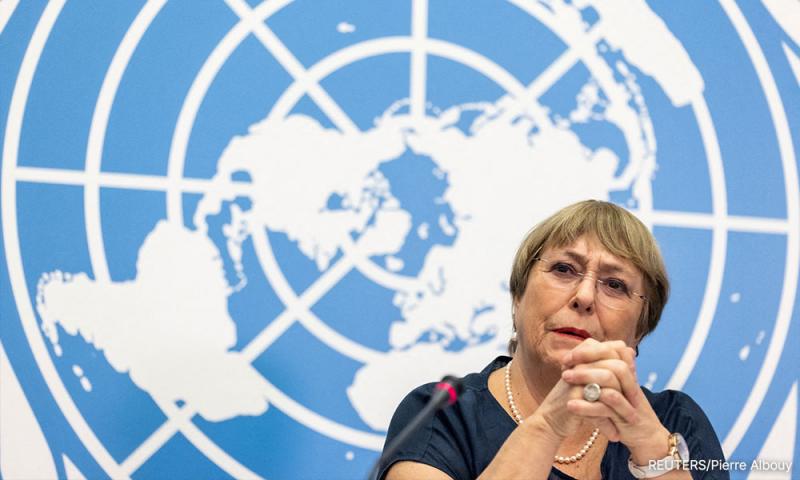LETTER | The fallacy of righteousness: The UN-trustworthy 'report'
LETTER | United Nations High Commissioner for Human Rights Michelle Bachelet (above) on Wednesday released a report that accused China of committing human rights violations in Xinjiang.
The report was published mere moments before the end of Bachelet’s four-year term. It comes after months of unexplained delays, raising questions about her intention of releasing it at such a moment.
It seems orchestrated and purpose-made to portray a false sense of crisis in China.
The act of hastily releasing a patchwork of false information cobbled together from dubious sources is not only irresponsible but also mischievous. It only exposes the hypocrisy and biases of the United Nations.
These allegations can mislead international public discourse, often due to back-channel funding and fact-twisting stories, meant to serve as a political tool for the US and other Western countries.
These perennial aspersions originate from the growing concerns among US elites who feel threatened by the progress the Chinese people have made, particularly in robotics, computing, education, foreign investments, telecommunications, high-speed rail, and live sciences.
These advances pose an existential threat to the advantages long enjoyed by Western corporations, who have benefited from centuries of colonialism and the straitjacket of intellectual property laws.
Maxime Vivas, a French writer and journalist, who visited Xinjiang twice in 2016 and 2018, stated that websites, newspapers, television stations, and politicians are quick to hype fake news about Xinjiang.
“It seems to be an implicit requirement of Western society to have every journalist, writer, and witness who talks about China to make negative comments in their works to prove their so-called righteousness.
“The more critical it is, the more credible it seems to be,” Vivas said, adding that, in the West, a book about the Grand Canyon in Colorado is just a book purely about the canyon, while a book about China’s Xinjiang should be interspersed with sharp criticism of Chinese politics.
Without any acknowledgement of their own past, Western countries, especially the US, regularly denounce what they call Chinese wrongdoings.
However, based on a thorough reading of the so-called report, what fits the bill are Abu Ghraib, Guantanamo Bay, and a host of other facilities set up by the US and its allies to conduct unlawful, illegal, and inhumane acts.
The US, whose history is laced with wars, illegal occupation, nuclear bombing, and ethnic cleansing, has never been accused of ‘genocide’.
Its war on Iraq alone resulted in the deaths of over a million people.
Are the biases and hypocrisy more evident now?
As part of efforts to make the Xinjiang region stable and prosperous, the Chinese government, following guidelines and standard practices established by the UN, has made efforts to empower local ethnic minorities through various policies; developing education and vocational skills, helping young Uygurs get a college education, and establishing factories and enterprises.
These proactive and preferential policies for ethnic minorities go a long way to ensure that they preserve their language, culture, and beliefs.
A paranoid attitude and isolation policy are socially dangerous. The truth remains that the US and the other Western states do not care about Uygurs in Xinjiang, who are the greatest beneficiaries of stability and an end to violence.
The US and its allies would instead make up anything to discredit China in the eyes of the world and use it as a scapegoat for distracting the international community from seeing its own shortcomings.
With the right economic statecraft, China’s trade with Southeast Asia totalled US$685 billion (RM3.07 trillion), nearly twice that of the US-SEA nations, including Malaysia, which relies on strong open trade, must remain wary of attempts by the West to sow discord in the region and put undue pressure on sovereign states.
The views expressed here are those of the author/contributor and do not necessarily represent the views of Malaysiakini.
RM12.50 / month
- Unlimited access to award-winning journalism
- Comment and share your opinions on all our articles
- Gift interesting stories to your friends
- Tax deductable
